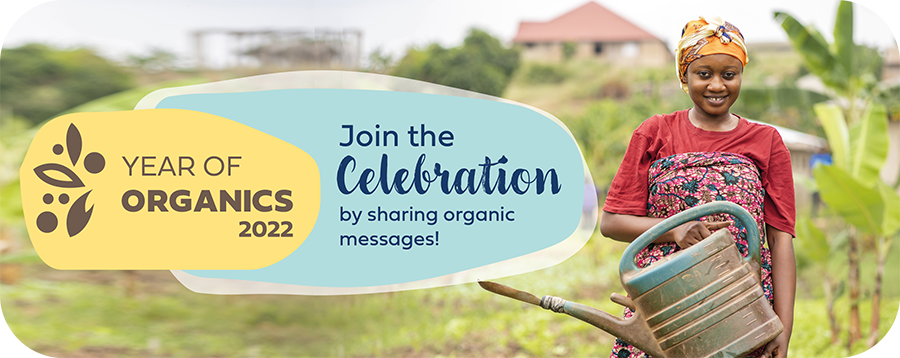The latest data on global organic farming will be presented by the Research Institute of Organic Agriculture (FiBL) and IFOAM – Organics International together with BIOFACH, the world’s leading trade fair for organic food. The statistics yearbook The World of Organic Agriculture was launched on 15 February 2022.
| Download our presentation | Download the press release | See infographics |
Organic farmland and retail sales continued to show strong growth worldwide, according to data from 190 countries (data as of the end of 2020). Published by FiBL and IFOAM – Organics International, the 23rd edition of The World of Organic Agriculture shows the positive trend seen in past years continued into 2020. This annual survey on global organic agriculture is supported by the Swiss State Secretariat for Economic Affairs (SECO), the Sustainability Fund of Coop Switzerland, and NürnbergMesse, organisers of the BIOFACH trade fair.
Organic retail sales grew by 14 billion euros, exceeding the 120-billion-euro mark.
2022 is The Year of Organics!
In 2022, let’s celebrate organics! We’re marking our 50-year anniversary by raising awareness of organic and its benefits for global food systems, our health, and the planet. Help us spread the word by using the official Year of Organics toolkit!
Highlights from The World of Organic Agriculture
Against the backdrop of the pandemic, the global market for organic food showed its highest growth ever in 2020, exceeding 120 billion euros – a total increase of 14 billion euros.
The United States continued to be the leading market (49.5 billion euros), followed by Germany (15 billion euros) and France (12.7 billion euros). In 2020, many major markets showed extraordinarily strong growth rates; the German market, for example, grew by more than 22 percent. Swiss consumers spent the most on organic food (418 euros per capita in 2020), and Denmark continued to have the highest organic market share, with 13 percent of its total food market.
The global COVID-19 pandemic resulted in a significant increase in demand for organic products in many countries, but there were also challenges: “The effects of the pandemic are visible in retail sales data. As people stayed home and began to cook more often and health, environment and climate change have become big issues, organic retail sales increased rapidly. However, at the same time, in the food service, sales decreased in many countries”, says Helga Willer, who is in charge of the yearbook at FiBL.
In 2020, 3.4 million organic producers were reported, an increase of 7.6 percent compared to 2019. India continued to be the country with the most organic producers (1.6 million). The majority of small-scale producers are certified in groups based on an internal control system.
Almost 75 million hectares were organically managed at the end of 2020, representing a growth of 4.1 percent or 3 million hectares compared to 2019.
Australia had the largest organic agricultural area (35.7 million hectares), followed by Argentina (4.5 million hectares) and Uruguay (2.7 million hectares).
Organic area increased across all continents in 2020. Half of the global organic agricultural land is in Oceania (35.9 million hectares). Europe had the second largest area (17.1 million hectares), followed by Latin America (9.9 million hectares).
In 2020, 1.6 percent of farmland around the world was organic. However, many countries have far higher shares: Liechtenstein had the largest organic share of total farmland (41.6 percent), followed by Austria (26.5 percent) and Estonia (22.4 percent). In 18 countries, 10 percent or more of all agricultural land was organic.
About The World of Organic Agriculture
“The World of Organic Agriculture” yearbook presents the results of the annual survey on organic agriculture worldwide and has numerous tables, graphs, maps and infographics. It contains reports by experts on the organic sector and information on emerging trends across all regions as well as selected countries. It also provides background information on standards and legislation, policy support, and the global market for organic food.
The data on organic agriculture is collected annually by FiBL in collaboration with many partners from around the world. The results are published jointly with IFOAM – Organics International. The activities are supported by SECO, the Coop Sustainability Fund, and NürnbergMesse, organisers of the BIOFACH trade fair.
The book can be ordered (30 euros + postage; affiliates of IFOAM – Organics International: 20 euros) or downloaded at shop.fibl.org (order number 1344).

